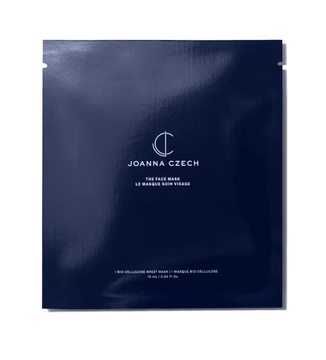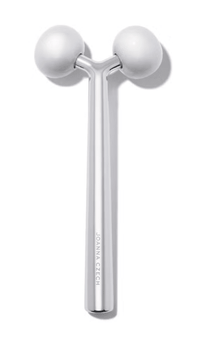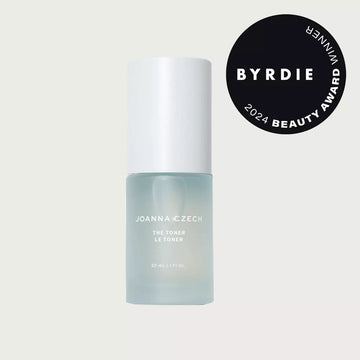Your Moisturizer Can Actually Hurt Your Skin During a Polar Vortex

By Erin Lukas
Here's a piece of news that will make you want to cry (frozen) tears: It is currently colder in some parts of the country than it is in Antarctica, Siberia, and the North Pole. Yep, it's that cold.
Along with frostbite, the sub-zero temperatures and sharp wind of a Polar Vortex can make skin even drier, flakier, and more red than it can get on an average cold, breezy, winter day. Switching to a thicker, richer moisturizer to keep moisture levels high is winter skincare 101, but did you know that it's in your best interest to make another moisturizer swap when a Polar Vortex is in your five day forecast?
I didn't, that is, until I saw a tip that celebrity facialist Joanna Czech recently shared on a client's Instagram Story. So, I reached out to her to get more info on why the winter moisturizer you use is dependent on just how cold it is outside.
Czech says to avoid using water-based moisturizers in sub-zero weather like a Polar Vortex because the water in the formula can freeze in the pores and lead to broken capillaries, not to mention your skin won't get hydrated.
"Water freezes on the skin in sub-zero temperatures the same way it does in the freezer and it expands," Czech explains. "And the same way that placing a glass filled with water in the freezer will break from expansion, in the skin, the expansion squeezes and breaks capillaries causing permanent broken blood vessels (also referred to as spider veins)."
Instead, Czech recommends using a thicker, richer, oil-based moisturizer because this type of formula will protect the lipidic layer of the skin, which is keeps moisture from escaping the skin.
Dr. Joshua Zeichner, a board-certified dermatologist in New York City breaks down the difference between water-based creams and ointments. "The main difference between creams and ointments is the presence of water in the formulation," he says. "Ointments are water-free, and as a result, won't freeze the way that water-based products as temperatures drop. However, even if you use a water based cream, it will only freeze when temperatures drop below 0 degrees."
Since our body temperature is normally 98.6 degrees, your body temperature can prevent creams from freezing even if the weather outside is below freezing. But, taking the extra precaution by swapping out you water-based cream won't hurt since the only way to really treat broken capillaries is with lasers and electrolysis, which Czech says are only temporary fixes.



